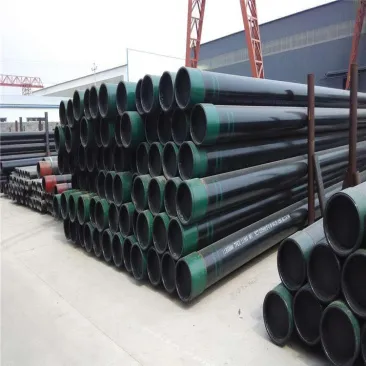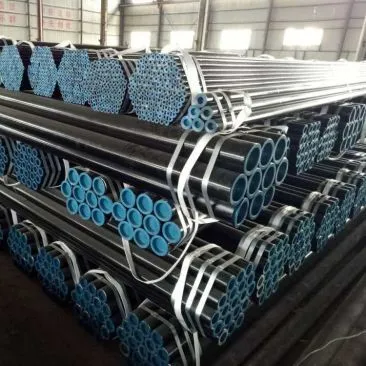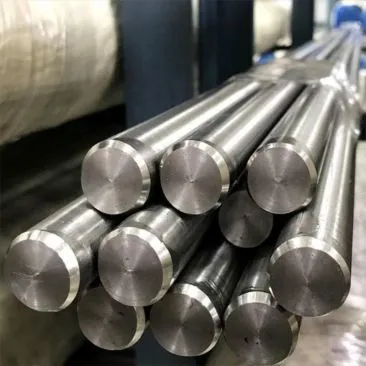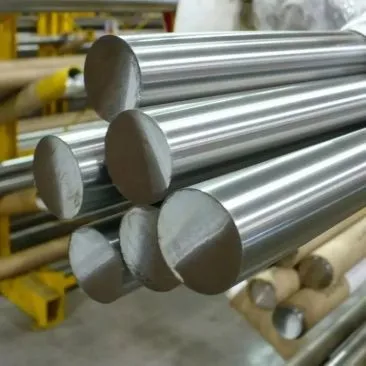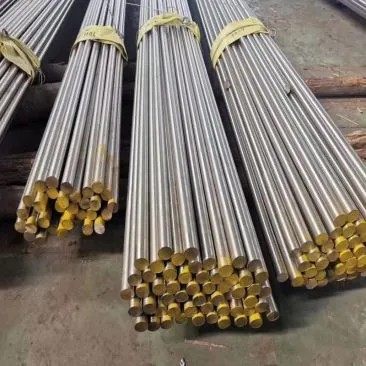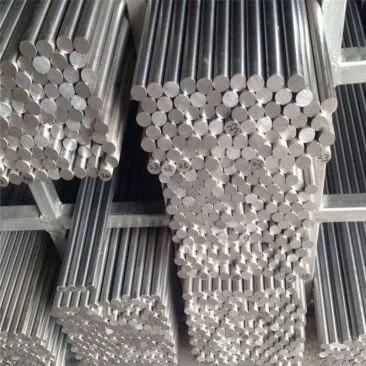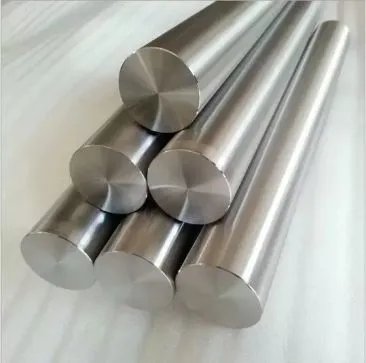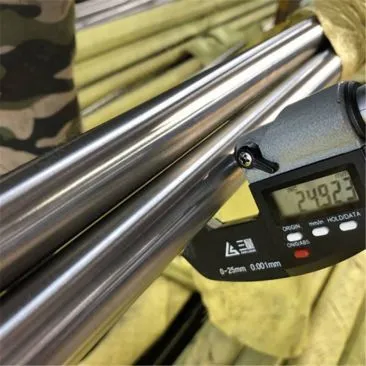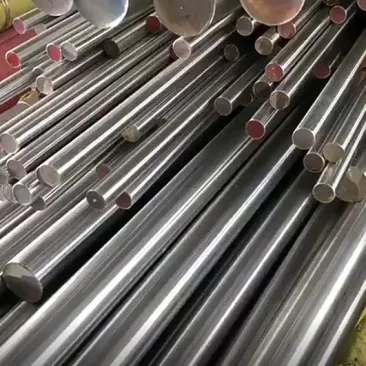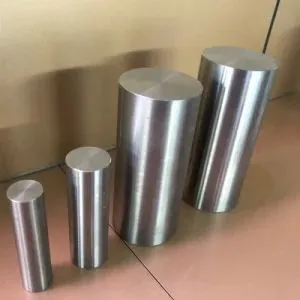Dimension range (OD inch): 1-1/2”----4 1/2”Dimension range (OD mm): 26.67----114.3Type of upset: NUE, EUE, Plain end.Standard: API SPEC 5CTMain Steel Grade: H40, J55, N80, N80Q, L80, L80-1, L80-9Cr, L80-13Cr, P110 etc.Type of Tubing: Non-upset tubing (NU), External-upset tubing (EUE), Integrated Joint (IJ).
Application:Oil well casing serves as well sidewallPipe Standard:API SPEC 5CTSize:OD: 114.3-508mm,WT: 5.21-16.13mmProcess Type: Seamless (SMLS), Electric Resistance Welded (ERW)Grade: J55, K55, N80-1, N80-Q, L80-1, L80-9Cr, L80-13Cr,C95, P110.Thread types:STC, LTC, BTC etc
316L Stainless steel round bar
Stainless steel round bar is a common type of steel, which is widely used in industrial production, machining, construction and other fields.Hastelloy C-276 alloy is one of the few materials that can be used in hot concentrated sulfuric acid solution It is mainly resistant to wet chlorine, various oxidizing chlorides, chloride solutions, sulfuric acid and oxidizing salts, and has good corrosion resistance at low and medium temperatures. Therefore, in the past 30 years, it has been widely used in harsh corrosive environments, such as chemical industry, petrochemical industry, flue gas desulfurization, pulp and paper making, environmental protection and other industrial fields.
2205 Stainless steel round bar
Stainless steel round bar is a common type of steel, which is widely used in industrial production, machining, construction and other fields.Use of 2205 Stainless steel round bar: 1. The heater is generally used in the oil refining unit; 2. Chemical plant equipment pipeline; 3. Fast cooling cylinder for solid solution used in textile industry; 4. Seamless steel pipe for heat exchanger and condenser. 5. High pressure seamless steel pipe for food (gb-2000) is a high-quality carbon structural steel and alloy steel seamless steel pipe suitable for chemical equipment and pipes with working temperature of - 40~400 ° C and working pressure of 10~30ma. 6. Seamless steel pipes for geological drilling and oil drilling control. 7. Cracking pipe for petrochemical industry is used to transport high-temperature and high-pressure fluid on fertilizer equipment.
Stainless steel round bar is a common type of steel, which is widely used in industrial production, machining, construction and other fields.201 stainless steel is mainly used for decorative tubes, industrial tubes and some shallow stretched products. Such as: oil waste gas combustion pipeline; Engine exhaust pipe; Boiler shell, heat exchanger and heating furnace components; Silencing parts for diesel engine; Boiler pressure vessel; Chemical transport vehicle; Expansion joint; Spiral welded pipe for gas furnace pipe and dryer, etc.
316L Stainless steel round bar
Stainless steel round bar is a common type of steel, which is widely used in industrial production, machining, construction and other fields.316L Stainless steel round bar is commonly used in pulp and paper making equipment, heat exchanger, dyeing equipment, film processing equipment, pipes, materials used for the exterior of buildings in coastal areas, as well as watch chains and case of advanced watches.
Stainless steel round bar is a common type of steel, which is widely used in industrial production, machining, construction and other fields.430 stainless steel is used for building decoration, fuel burner parts, household appliances and household appliances. 430F is a steel with free cutting property added to 430 steel, mainly used for automatic lathes, bolts and nuts. 430LX adds Ti or Nb to 430 steel to reduce the content of C, which improves the processability and welding performance. It is mainly used in hot water tanks, hot water supply systems, sanitary appliances, household durable appliances, bicycle flywheels, etc.
304L Stainless steel round bar
Stainless steel round bar is a common type of steel, which is widely used in industrial production, machining, construction and other fields.304L stainless steel is mainly used in automobile accessories, hardware tools, tableware, cabinets, medical appliances, office equipment, weaving, handicrafts, petroleum, electronics, chemicals, textile, food, machinery, construction, nuclear power, aerospace, military and other industries.
310S Stainless steel round bar
Stainless steel round bar is a common type of steel, which is widely used in industrial production, machining, construction and other fields.310S Stainless steel round bar is widely used in kiln, high-temperature furnace, boiler, furnace liner high-temperature equipment, such as kiln car, boiler liner, high-temperature furnace, high-temperature furnace tube, combustion machine liner, etc. It can be used for high-temperature equipment. The product is resistant to high temperature and heat. 310S Stainless steel round bar has good creep strength and can work continuously under high temperature. The working temperature of 310S stainless steel is 1200 ℃, and it can work continuously at 1100 ℃. It is mainly used to manufacture high temperature exhaust pipe, high temperature furnace, high temperature furnace liner, crematory furnace and other steel grades requiring heat resistance, as well as high temperature and high temperature contact parts.
904L Stainless steel round bar
Stainless steel round bar is a common type of steel, which is widely used in industrial production, machining, construction and other fields.904L tainless steel round bar (super austenitic stainless steel) is a high alloyed austenitic stainless steel with very low carbon content. It has good corrosion resistance in dilute sulfuric acid and is specially designed for environments with severe corrosion conditions. It has high chromium content and sufficient nickel content. The addition of copper makes it have strong acid resistance, especially high resistance to chloride interstitial corrosion and stress corrosion cracking. It is not easy to appear corrosion spots and cracks. Its pitting resistance is slightly better than that of other steels. It has good processability and weldability, and can be used for pressure vessels.



